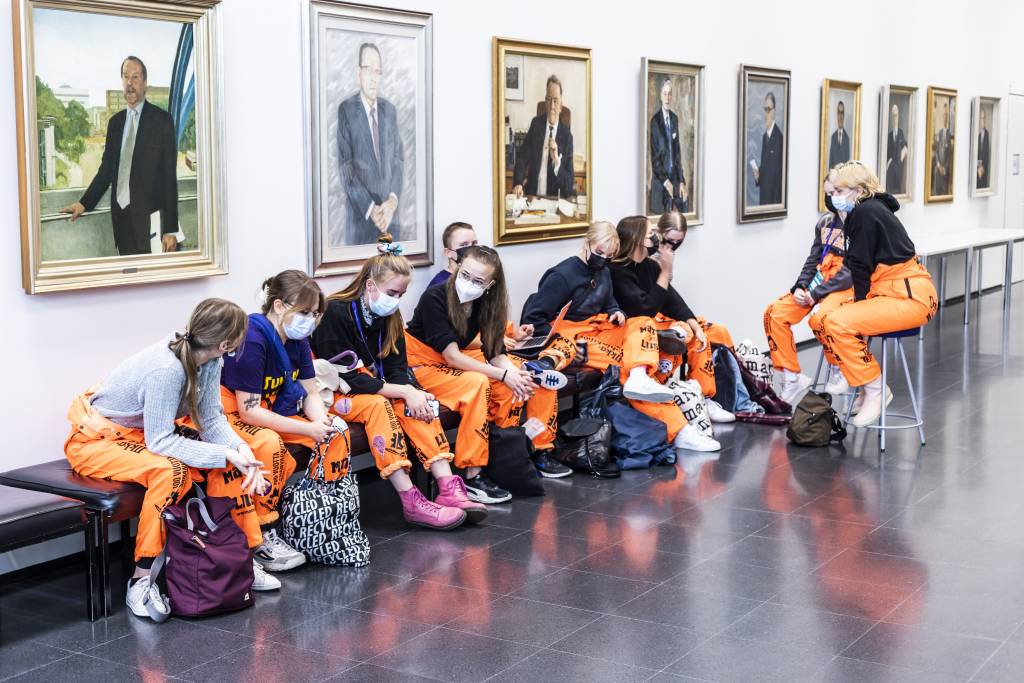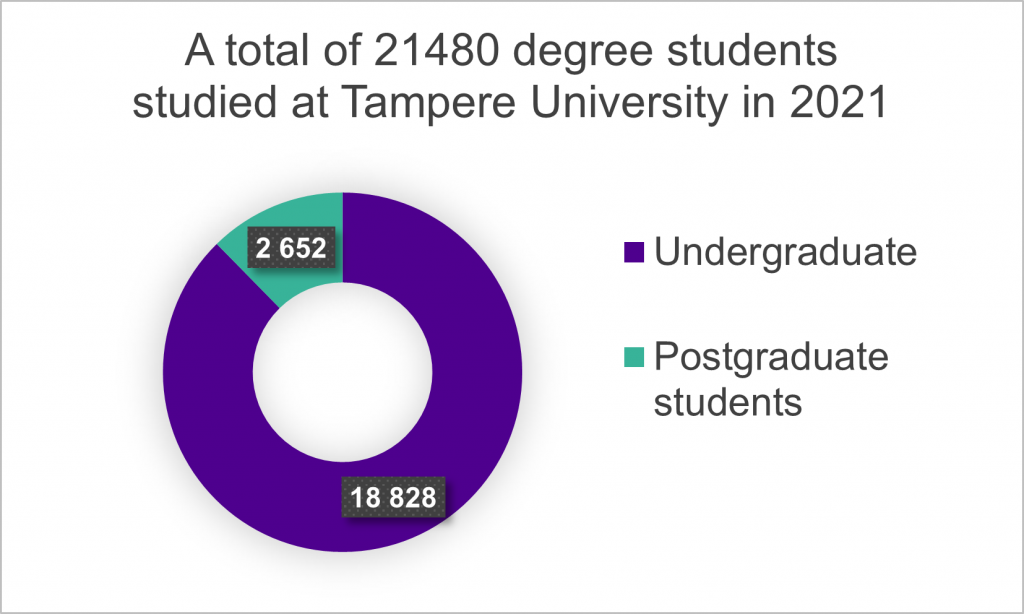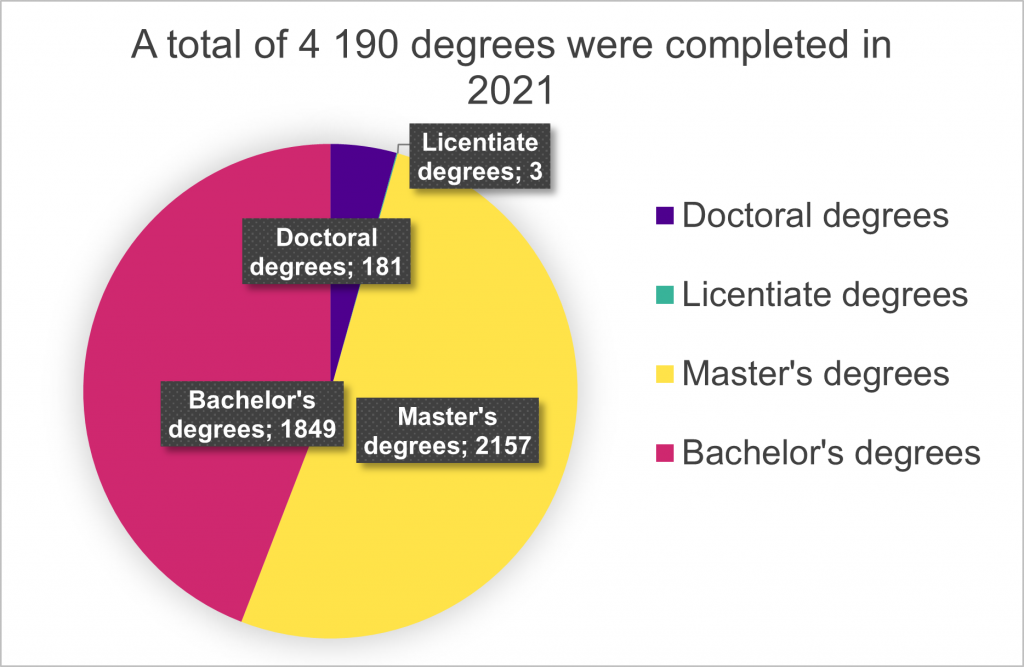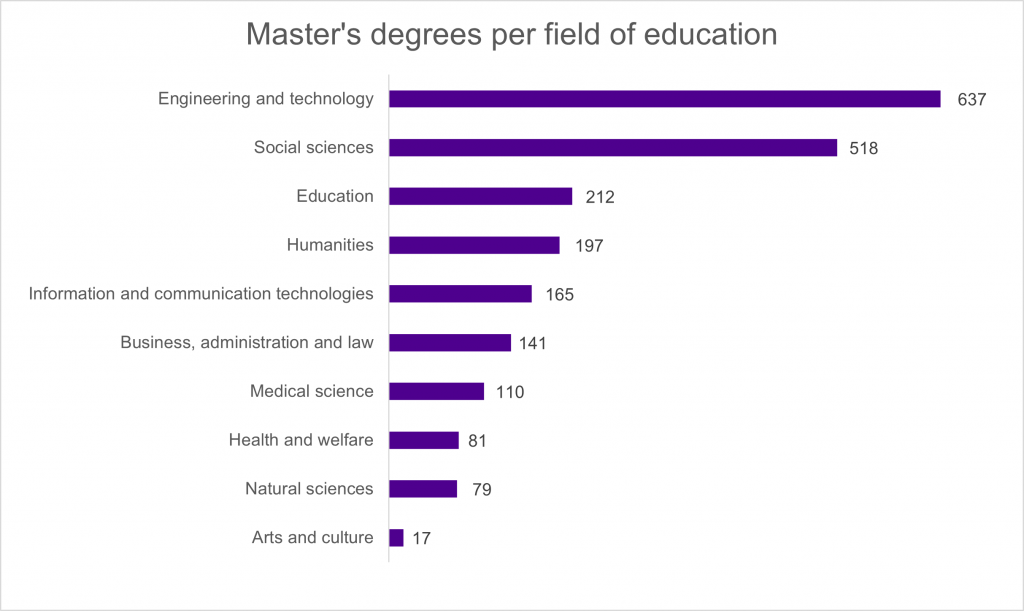
In 2021, our students continued to study primarily remotely due to the Covid-19 pandemic. The extended period of remote learning took a toll. We offered enhanced support both to our students and teaching staff throughout the year.

There were 21,480 students working towards a degree at Tampere University in 2021. Measured as full time equivalent (FTE) students, our total student enrolment was 16,233. International students made up 6.9% of the student body.
We conferred 4,109 degrees in our ten fields of study. Compared to 2020, the number of conferred degrees decreased slightly. Our students completed 2,157 master’s degrees and 184 postgraduate degrees. The fields of engineering (637) and social sciences (518) accounted for the majority of master’s degrees. A total of 191 students graduated with a degree in medicine or health and welfare.


The number of students who graduate on time and their share of all our BSc and MSc graduates has increased each year and was 38% in 2021. We are working to increase the share of students who graduate on time to 40% by the end of 2024.
We expanded our educational offerings in line with a national programme funded by the Finnish Ministry of Education and Culture by making a further 225 study places available in our Finnish-language degree programmes in the autumn of 2021. We saw the number of first-choice applicants increase by a little more than a thousand from the previous year, totalling 16,772.
In the second round of the national joint application scheme in the spring of 2021, Tampere University was for the first time the university with the most applicants in Finland. The total number of applicants was 32,281. Some 3,300 study places were available.
The Teaching and Learning Centre (TLC) established by Tampere Universities continued its operations in 2021. TLC brings under one roof pedagogical expertise and services for teachers and provides teachers with training and pedagogical support throughout their careers, thereby fostering a sense of community and promoting networking among teaching staff. In addition, TLC supports the provision of coaching-style guidance for students. Read more about TLC.
We maintained our active presence in the ECIU University created by the European Consortium of Innovative Universities (ECIU), which is funded by the European Commission and aims to create an innovative new model for higher education in Europe. The ECIU University aims to transform traditional degree-based education by developing challenge-based modules that will also support continuous learning. Read more about the ECIU University.
The student union TREY presented Good Teacher Awards to University Lecturer, Docent Anneli Yliherva from the Faculty of Social Sciences, University Lecturer Liisa Mustanoja from the Faculty of Information Technology and Communication Sciences, and University Instructor Veli-Pekka Pyrhönen from the Faculty of Engineering and Natural Sciences.
